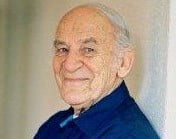Recovery of Adult Female Incest Survivors: A Psychospiritual Perspective – Barbara Sinor (Is.16)
Barbara Sinor, Ph.D.
 Dr. Sinor’s research clearly demonstrates the value of incorporating transpersonal/psychospiritual modalities into treatment plans for adult female survivors of incest. She presented this study in narrative form in the APRT Newsletter, 18 (2), Spring, 1998. Here we offer some of the “nuts and bolts.”
Dr. Sinor’s research clearly demonstrates the value of incorporating transpersonal/psychospiritual modalities into treatment plans for adult female survivors of incest. She presented this study in narrative form in the APRT Newsletter, 18 (2), Spring, 1998. Here we offer some of the “nuts and bolts.”
This research was designed to determine whether adult female incest survivors who utilized transpersonal/psychospiritual counseling interventions, including past-life therapy, during their recovery process felt them to be advantageous to their healing. The primary goal of the research was to present a measurable use-effective perspective to the therapeutic community at large of the benefits of psychospiritual treatment modalities for this population. It was the researcher’s hypothesis that the findings would indicate positive … Read the rest



